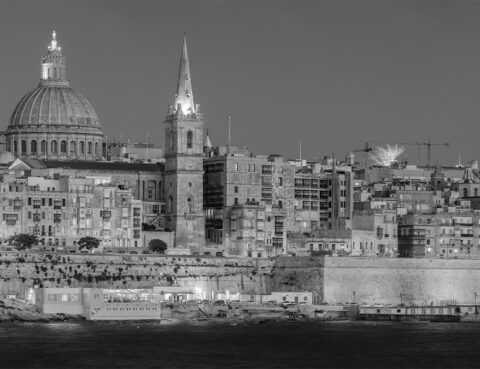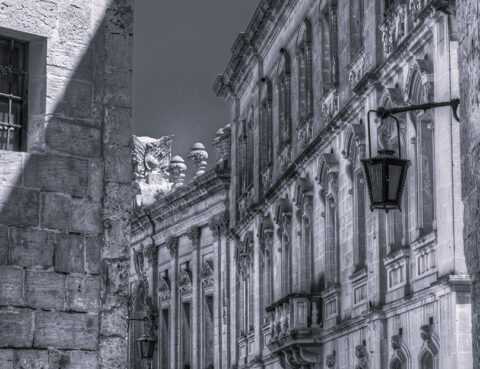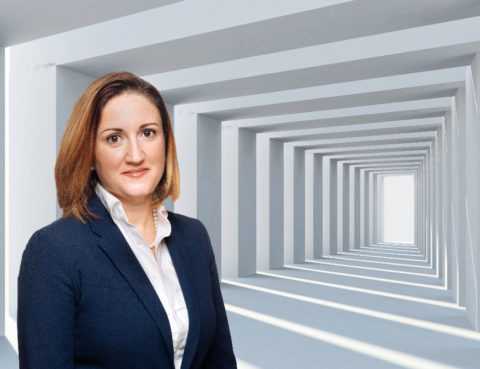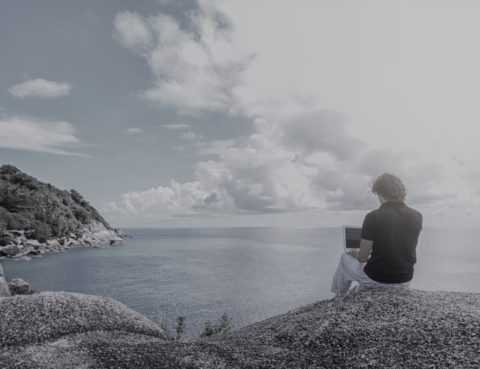Malta is a small archipelago located in the Mediterranean Sea, south of Italy. The island-state boasts a warm climate, an English-speaking population and a rich history. Thanks to its diverse cultural past, it has been a growing tourist and expat destination year after year. Popular cities in Malta include the capital and port city of Valletta, which is a UNESCO world heritage site, the old capital city of Mdina, Sliema, Saint Julians and Saint Paul’s Bay. Equally popular is Gozo, Malta’s sister island which is ideal for those looking for a tranquil lifestyle.
Why move to Malta?
Whether one wants to relocate to Malta to live, work, study, conduct business, or retire, Malta is the perfect place to consider. Despite its small area, Malta offers as many opportunities to expats as any other European country. With a warm climate throughout the year, breath-taking scenery, and fascinating historical sites to explore, Malta is an amazing second home for those who are looking at relocating to a vibrant European country. However, it is essential to know about the ins and outs of a country if you plan on living there for a long time.
Malta Residency Schemes
There are various residence schemes which facilitate the acquisition of a residence permit in Malta. European nationals moving to Malta can do so by applying for residency under the Malta Ordinary Residence Scheme or The Residence Programme. Non-EU nationals are required to apply for residency under a residence programme such as the Malta Permanent Residence Programme, the Malta Global Residence Programme or the Malta Nomad Residence Permit.
What are the Best Places to Live in Malta?
Accommodation is the first thing which comes to mind when moving to a new country. Depending on your preference you can buy a property inland for a quieter life or opt for housing by the sea where amenities are readily accessible.
- St Julian’s and Sliema are popular due to the number of shopping malls, restaurants, and clubs for people who want an entertaining lifestyle. Both are vibrant towns with plenty of activities and attractions and boast a seaside promenade where one can enjoy a nice walk or jog.
- Valletta is the capital city where the main government offices and private sector workplaces are located. It also includes a variety of amenities especially for digital nomads with co-working spaces, cafes, and bars. It is also the ideal location to experience the true Maltese culture, although renting or purchasing a property in Valletta is quite expensive.
- Mellieha is located at the northern part of Malta and is a popular summer destination for both tourists and locals. It boasts of sandy beaches, natural environment and is home to Popeye Village which is a very popular tourist attraction.
- Gozo, Malta’s sister island is a naturally beautiful place which is ideal for people who love tranquillity. Crossing from Malta to Gozo requires a 30-minute ferry ride. With a population of just 40,000 inhabitants, Gozo is much quieter when compared to the main island of Malta. It has a unique charm, and its beauty lies in its greenery, quietness, and tranquillity it offers.
What is the Climate in Malta?
Malta enjoys a typical Mediterranean climate with mild winters and warm summers. Summers are usually hot and dry as rain mainly occurs only during winter. Temperatures usually start rising during spring when the rain becomes less frequent as days also become more longer. The Maltese islands enjoy a daily average of around 12 hours of sunshine in summer and around 6 hours in winter.
The average temperature is around 23 degrees Celsius during the day while going down to sixteen degrees Celsius at night.
What are the Languages Spoken in Malta?
Malta’s official languages are Maltese and English. Maltese is the islands’ national language and is a language of semitic origin which over the years incorporated many words from different Maltese colonisers, mainly English, Italian and French. Due to the fact that Malta was a British colony up to 1964, one can see a number of British remnants such as the red phone and letter boxes, street signs, and the language itself. Government announcements and traffic signs are done in both languages.
The Italian language is also widely spoken in Malta given the close proximity to Italy.
What is the Cost of Living in Malta?
Malta offers a high quality of life at considerably affordable prices depending on one’s lifestyle. The rental of a one-bedroom apartment, daily needs and utilities would require a spend of around €1,600 a month. In Malta, a variety of properties are available for sale or rent including apartments, townhouses, terraced houses, houses of character and villas. 1 to 2-bedroom apartments away from the city centre are available for rent at around €800 a month while those close to the centre can be rented out for €1,000 or more monthly. It is also important to mention that due to increased demand from expats, property prices are rapidly rising. Utility bills can be covered with approximately €100 and €200 a month. Public transport in Malta is free of charge for Maltese citizens and residents who register for Tallinja Card. Supermarket items aren’t too pricey except for those items that are imported and fresh meat.
What are the Job Opportunities in Malta?
Malta has one of the lowest unemployment rates in Europe and jobs as well as entrepreneurial opportunities are abundant here. Some of the trending fields in Malta are in the fields of tourism, gaming, finance, and Information technology. Non-EU citizens will be required to apply for a work permit when moving to Malta.
What is the Political System in Malta?
Malta is a democratic republic with a parliament as its legislative branch, the cabinet of ministers forming part of the executive branch, and finally a judicial branch which is made up of the courts of Malta. The Maltese parliament is elected by the general public for a five year period. The head of state is the president, which is appointed by the parliament. The Prime Minister is the head of the government and oversees a cabinet of ministers.
How is the Healthcare in Malta?
Malta is ranked within the top 5 healthcare systems of the world by the World Health Organisation. The medical care system is available both through public and private hospitals. In Malta, there is one main public hospital (Mater Dei) which is supported by a network of regional health centres. Healthcare is free of charge for all Maltese citizens and residents who pay social security taxes. In addition, tourists from EU countries who hold a European Health Insurance card can also benefit from free healthcare whilst on holiday in Malta. The country also has a number of private hospitals and clinics which offer a broad range of services from blood tests, to scans and surgeries.
What is the Education System in Malta?
Malta’s educational system is one of the top-rated ones in Europe and mostly follows a British curriculum. It is divided into independent, church and state schools. State schools are found in all the main localities in Malta and Gozo and are free of charge to Maltese citizens and to children of those working in Malta. Transport to and from schools is also free, as are books and study material. Church schools are operated by the Catholic church in Malta however due to an agreement with the state, they also do not charge any fees. There are also a good number of independent private schools in Malta which charge tuition fees. In Malta one can also find schools with cater for students with disabilities or learning difficulties.
The Maltese educational system is structured in four stages: pre-primary (ages three to five), primary (ages five to 11), secondary (ages 11 to 18) and tertiary education. After these stages of education, students can then pursue education at the Malta Junior College, the Malta College for Arts, Science and Technology (MCAST) or the Institute of Tourism Studies.
In terms of tertiary education, Malta has one university (the University of Malta) which is the highest educational institution on the island. It offers a wide range of full time and part time degrees and diploma courses.
What is the Process to Relocating to Malta?
To learn more about the process to relocating to Malta, you can contact us and our team of lawyers and professionals will guide you throughout the entire process.
Vietnam’s economy has been growing substantially over the years with a growth of 8.02% in 2022, the fastest annual growth since 1997. Despite the pandemic, the Vietnamese economy remained strong, making it Southeast Asia’s fastest growing economy. With its booming economy and GDP there has been a rise in the number of Vietnamese high net worth and ultra-high net worth individuals who are seeking better investment opportunities and quality of life in Europe. It is estimated that there are more than 1234 Ultra High Net Worth Individuals in Vietnam, and such number is forecasted to reach 1551 in three years’ time. Such affluent individuals are increasingly interested in investment migration programmes, such as the Malta Permanent Residence Programme in order to give their family better opportunities such as the right to live in a European country indefinitely and visa-free travel within the Schengen Area.
Malta’s Growing Vietnamese Community
Due to Malta’s stable economy, high employment rate, and multiple investment opportunities, Vietnamese nationals are becoming more and more interested in applying for Maltese residency. As published by IMI Daily , 2.9% of the permanent residence permits issued in Malta through the Malta PR programme have been to Vietnamese nationals, falling second just behind Chinese nationals (90%). With a well-established Vietnamese community it goes without saying that Vietnamese nationals make the best out of Malta’s year-round sunshine, relaxing atmosphere, good quality of life and hospitable people.
Life in Malta for Vietnamese Nationals
Maltese residency offers several benefits for Vietnamese nationals. Such benefits include access to the Schengen Area without the requirement of applying for a visa and the right to live in the Schengen Area for 3 months in every 6-month period. Moreover, with a Maltese PR card applicants and their family members can reside in Malta for life. Malta offers a high standard of living with a strong and stable economy, good education system and top-notch healthcare institutions. As ranked by the WHO in the top 5 healthcare systems of the world, Malta has excellent private and public hospitals ensuring accessible health services for all at affordable rates. Malta is also an attractive location for international business, with a favourable tax regime and a strategic location between Europe and Africa. Malta’s position at the centre of the Mediterranean Sea makes it an ideal hub for enterprises wanting to trade between these continents. Some other factors that makes Maltese Permanent Residence a perfect programme for Vietnamese nationals are longer life expectancy, good air quality, English as an official language, and a booming economy.
Real Estate Investment Opportunities for Vietnamese Nationals
The Malta Permanent Residence Programme offers Vietnamese expats the opportunity to invest in real estate. Malta has a reputation of having one of the best property markets in Europe. There’s no doubt that investments in Malta will offer high returns to Vietnamese buyers. Apart from the investment in the qualifying property which needs to be kept under the name of the Main Applicant, usually investors purchase a second property for rental investment.
Malta Permanent Residence for Vietnamese Nationals
Vietnamese nationals who are at least 18 years old, in good health, and possess financial assets of at least €500,000, can apply for the Malta Permanent Residence Programme.
Applicants will be granted permanent residency in return for an investment in Malta through the rental or purchase of property, a donation to charity and the payment of a government contribution.
Vietnamese nationals have the option of buying property for a minimum of €300,000 in Gozo or the South of Malta, or €350,000 in the rest of Malta, along with a government contribution of €68,000. They can also rent property for at least €10,000 annually in the south of Malta and €12,000 annually in the rest of Malta, the government contribution for which is €98,000. Lastly, applicants must make a donation of €2,000 to a local registered NGO in Malta.
As a summary, Malta Permanent Residency Programme (MPRP) Requirements are:
1. Donate €2,000 to charity, and
2. Pay a government contribution of €98,000 if renting a property or €68,000 if purchasing a property, and
3. Renting or Purchasing a property in Malta
A large number of Vietnamese nationals have already acquired Malta’s Permanent Residence through the MPRP, and more are interested in applying. If you’re interested in applying, feel free to contact us.
Malta’s Golden Visa programme, formally known as the Malta Permanent Residence Programme was launched by means of Legal Notice 122 of 2021 in April of 2021. Incidentally the launch happened with the announcement of the restrictions of the Portugal Golden Visa and rumours of its possible closure. In February of 2023, Portuguese Prime Minister Antonio Costa confirmed these rumours and announced that the government would be ending the Portugal Golden visa programme. As a result, Malta now presents the best alternative to Portugal’s golden visa programme.
Permanent Residency Malta Golden Visa Portugal Differences
As a country forming part of the European Union and Schengen, Malta’s residence by investment programme has been a popular alternative for expatriates seeking a safe European country which is centrally located in the Mediterranean Sea, making it an ideal base for travelling in Europe and North Africa. Malta is also part of the Commonwealth as it was a colony of the UK until 1964. As a result Malta has two official languages, Maltese and English, making it effortless to communicate with locals on the island.
Malta requires investment only on approval of the PR Application
One of the main differences between Malta and Portugal’s Golden Visa programme is that whilst in Portugal the investor would need to purchase a property before submission of the application, such investment is only required once the application is approved in Malta.
The applicant is only expected to visit Malta only on approval
Given that in Malta, the investor would need to rent or purchase a property only on approval, there is no need to visit the island before the issue of the letter of approval. In fact, in Malta, the submission of the application is done by the licenced agent through a Power of Attorney which the applicant signs. Once the letter of final approval is issued, the applicant would be invited to visit Malta in order to take biometrics for the residence card to be issued. In Portugal, the applicant would need to visit the country at the outset in order to open a bank account and to make the initial investment.
Malta grants Permanent Residence status immediately compared to a temporary residence permit issued in Portugal
The residence status issued by Malta under the Malta Permanent Residence Programme is immediate permanent residence from day one. Malta issues two documents on approval, one being a certificate of permanent residence without an expiry date, and secondly a residence card which is issued for five years and renewable indefinitely. This means that with a Malta PR, families are given the right to reside in Malta indefinitely from the moment of issuance of the residence certificate. Portugal on the other hand gives a temporary residence permit which is initially issued for one year and then renewable for two-year periods. In order to maintain residency in Portugal the investor would need to spend at least 7 days in Portugal during the first year and 14 days during subsequent years. Moreover, in the latest announcement issued by Portugal’s Prime Minister it was announced that renewals will only take place if the investor actually uses the property in Portugal as the main residential address of the applicant or if such property is rented out on a long-term basis.
Malta doesn’t require the purchase of a property. Rental of a Property is allowed to apply for Permanent Residence
Under the property investment route in Portugal, an investor was required to purchase a real estate for at least €280,000. Properties in specific locations required an investment of at least €500,000. It is not possible to lease a property in Portugal and qualify for the golden visa.
In Malta, the applicant is given the option to rent OR buy a property. Only on approval, an investor under the Malta PR programme would need to purchase a residential property costing not less than €300,000 for a property located in Gozo or in the south of Malta, or €350,000 for a property located elsewhere in Malta. Alternatively, the applicant would on approval be required to rent a residential property for not less than €10,000 annual rent for a property situated in Gozo or in the south of Malta, or not less than €12,000 annually for a property situated elsewhere in Malta.
The applicant is required to keep the qualifying property only for 5 years, however in order for the residence card to be renewed, the applicant would still need to have a property rented or purchased in Malta.
Malta requires applicants to provide evidence that they are economically self-sufficient
Unlike Portugal, in order to be eligible to apply for the Malta Golden Visa applicants would need to show possession of at least €500,000 worth of assets, out of which €150,000 shall be in the form of liquid assets such as money in a bank account or money invested in stocks or bonds. Crypto currencies are excluded in order to proof economic self-sufficiency. Under the Portugal Golden Visa programme, applicants were not asked to provide evidence of economic self-sufficiency.
Malta allows the inclusion of four family generations under one application
In Malta, the main applicant may add in the same application the main applicant’s spouse in a monogamous marriage or in another relationship having the same or similar status to marriage; children without age limits as long as they are not married and are still financially dependent on the main applicant, and parents/grandparents of both the main applicant and the spouse provided they are also economically dependent on the main applicant.
A special designated agency operates the Malta PR programme
The Malta Permanent Residence Programme is administered by a designated agency called Residency Malta Agency with the sole responsibility to manage and promote Malta’s residence by investment programme. The Agency is also tasked to receive applications, to conduct due diligence on prospective applicants and to issue the residence cards and certificates. On the other hand the Portuguese Golden Visa Programme is administered by SEF (Servico de Estrangeiros e Fronteiras) which is the Portuguese Immigration and Borders Service. This agency is responsible for all immigration matters in Portugal and for monitoring borders hence applications submitted under the Golden Visa programme are processed with other immigration programmes and not given a preferential treatment.
As a result applications under Malta’s Golden Visa are processed within a six month period whilst applications under the Portugal’s Golden Visa sometimes take up to two years to be processed.
Requirements – Malta’s Golden Visa Programme
The Malta Permanent Residence Programme requires investors to satisfy three main requirements. The majority of the requirements are to be paid upon approval of the application. The three requirements are as follows:
- Pay a one-time application fee to the Residency Malta Agency of €98,000 when renting a property or €68,000 if purchasing a property, and
- Rent a property in Malta for €10,000/€12,000 per year OR purchase a property for €300,000 or €350,000 (depending on the location), and
- Pay a donation of €2,000 to a local registered philanthropic, cultural, sport, scientific, animal welfare or artistic NGO.
From the above requirements, the applicant is only required to pay a non-refundable fee of €10,000 on submission of the application.
What are the main benefits of obtaining residency in Malta?
Benefits of Obtaining Malta Permanent Residency
• Having the right to settle, reside and work permanently in Malta
• Include all the family members in the application
• Enjoy visa-free travel within the Schengen Area and the right to reside in Schengen countries for 90 days out of 180 days
• Malta has a Mediterranean climate with mild winters and hot summers
• Cost of living in Malta is low compared to European countries with affordable housing, food and entertainment options
• English is an official language in Malta, making it an attractive destination for English-speaking expats
• Malta has a rich cultural heritage and is home to many historical sites and landmarks
• Malta has a high quality of life with excellent healthcare, education and government services
Malta Permanent Residence Programme Application Process
The first step in order to apply for permanent residence in Malta involves the engagement of a licenced agent such as our firm. The applicant gives a Power of Attorney to the licenced agent in order to compile the documents and prepare the application forms for submission. An application is submitted by the licenced agent and the applicant is not required to be in Malta in order to submit an application. Once the required documents and application forms are submitted to the Residency Malta Agency, the applicant would need to pay a non-refundable government fee of €10,000, which is part of the final contribution. On receipt of the application and government fee, the Agency will start reviewing the application and conducting a due diligence exercise. Such process is expected to take 4-6 months, after which the letter of in principle approval is issued. Once the letter of in principle approval is issued the applicant is required to pay the remaining government fee, rent or purchase property and give a donation to charity. Once these requirements are fulfilled, the Residency Malta Agency issues a letter of final approval and the applicant would be required to visit Malta to give biometric data for the residence cards to be issued. Once this is done the applicant becomes a permanent resident of Malta for life.
Malta Permanent Residence Programme
The Malta Permanent Residence Programme offers permanent residence in return for a property investment in Malta, a contribution to the government and a charity donation. Residency cards are valid for 5 years and can then be renewed indefinitely if the investor maintains an address in Malta (rented or purchased). The Malta Permanent Residence Programme is available to Indian nationals who are at least 18 years old, in good health, and who possess at least €500,000 in capital, out of which €150,000, must be in the form of liquid assets or a capital of €650,000 out of which €75,000 is in financial assets.
Malta as a Second Home for Indians
Indian nationals are showing great interest in foreign permanent residency programmes, more so for Europe in recent years. According to the Maltese Ministry of Foreign and European Affairs, there are 112 private investments from India in Malta. Any Indian investors interested in the Malta PR programme should feel consoled by the fact that there’s already a well-established Indian community of around 5000 in Malta, as estimated by the Indian Ministry of External Affairs. There’s no language barrier on the island, as all Maltese are fluent in English and all official communication is also done in English. The rich history of 7000 years and unique culture along with the covetable Mediterranean climate makes Malta the perfect place to call home.
Malta Permanent Residence Programme Investment Options for Indian Nationals
Indian nationals can opt for property purchase or property rental to qualify for the Malta Permanent Residence. One can either buy a property for at least €375,000 anywhere in Malta or Gozo.
It is also possible to rent a property for a minimum of €14,000 annually, anywhere in Malta and Gozo. The government contribution for property purchase is €80,000 and a higher amount of €110,000 is applicable for those renting a property. An additional fee of €10,000 is to be paid per each family member such as the spouse, children, parents and grandparents.
Indian nationals are also required to donate a minimum of €2,000 to a local registered NGO. All investments and government contributions are to be paid on approval. The applicant only pays a fee of €15,000 on submission of the application which is then deducted from the contribution payable on approval.
Benefits of Malta Permanent Residence Programme for Indian Nationals
The Malta Permanent Residence offers multiple benefits to Indian nationals, the most important one being the automatic eligibility of the applicant’s family for the programme. Applicants can include their children (up to 28 years of age) as long as they are not married and show that they are still financially dependent on the main applicant. Unlike other countries offering residence programmes, the children will retain their Maltese permanent residence for life even if they get married or find an employment.
Indian nationals can currently travel visa-free to 60 countries. With permanent residency in Malta, comes the ability to travel visa-free throughout the Schengen zone. Malta is rapidly becoming the top choice for investment migration due to its low crime rate and clean environment, which Indian nationals mostly have as a requirement. With a stable economy, great business development potential, a booming property market that offers high returns, and a low unemployment rate, Malta makes for an excellent home for Indians. You can find excellent schools and universities for your kids, along with high-standard hospitals and medical services. The application process is simple and Indian nationals receive the permanent residence card within 6 to 12 months of applying.
Tax System for Indian Malta Permanent Residents
Obtaining permanent residence in Malta does not have an impact on the tax situation of an applicant. Malta adopts the non-dom system of taxation which means that individuals who are deemed to be tax resident in Malta, by spending at least 183 days living in Malta are only taxed on income arising in Malta and income arising abroad which is transferred to Malta. Indian nationals can thus obtain tax residence only if they want to by residing in Malta for more than 183 days or by proving their intention to reside in Malta in the future.
Feel free to contact us to learn more about the application process and legal requirements regarding the Malta Permanent Residence Programme.
Malta has joined a list of other countries offering a digital nomad visa. The official name of this initiative is Malta’s Nomad Residence Permit, and it grants digital nomads the right to live in Malta whilst retaining one’s foreign employment or economic activity. Malta ticks all the right boxes for digital nomads with its excellent climate, strategic location in the centre of the Mediterranean and the safest country in Europe. It’s entire capital city, Valletta is listed as UNESCO World heritage site and although Malta is a small island it is full of hidden treasures for one to explore and discover.
3 things you need to know before submitting an application for Malta Nomad Residence Permit
1. Applicants must receive a gross monthly income of at least €2,700
In order to apply for Malta’s Digital Nomad Visa an applicant must show to the authorities that he/she earns at least €2,700 gross monthly income. The authorities accept applications from three different categories of digital nomads. This includes:
- Individuals who are employed in a foreign country and can work from Malta. Such individuals must show a contract of work and provide evidence that they have been employed by the same company for at least 3 months, or
- Individuals who conduct business activities for a company registered outside of Malta and of which the applicant is a partner or a shareholder. Under this category such individuals must prove that they have been conducting such work for at least six months, or
- Individuals who offer freelance or consulting services to clients whose permanent establishments are outside of Malta. Under this category such individuals must show that they have been doing such work for at least 3-6 months.
2. Applicants can bring their family members as well
Together with one’s application, the digital nomad can apply to bring to Malta: the spouse (including same-sex couples), minor children and adult children who are principally dependent on the main applicant. Adult children who are unable to cope independently due to a disability or medical condition can also apply together with the main applicant. Applicants adding family members must show additional income over and above the €2,700 per month.
For each family member, the main applicant must show that he/she earns an additional €255 per month.
3. Malta Nomad Residence Permit can be renewed for a maximum of 3 years
Once approved, the initial Nomad Residence Permit is issued for 1 year. The Permit may be renewed twice for a total stay of a maximum period of 3 years in Malta.
To be eligible for renewal, the applicant must provide proof that he/she has resided in Malta for a cumulative period of at least 5 months over the previous 12 months. One may apply for a renewal of the permit by not later than forty-five (45) days prior to the expiry of the existing permit.
ACC’s Immigration, Managing Partner Dr Priscilla Mifsud Parker, has been re-appointed as Chair of the Malta branch of Step – the Society of Trust & Estate Practitioners. STEP is an international professional body consisting of accountants, legal practitioners and trustees that support families plan for their future.
Dr Mifsud Parker has been re-appointed for another term in July 2022, after heading the Malta branch since 2020. Before this, Priscilla had served as a STEP Malta Branch Committee member and also in the capacity of Secretary and Chair of the Technical Committee.
At ACC, Priscilla specialises in Maltese immigration law particularly acquisition of residence and citizenship in Malta. She is authorised to act as a licenced agent and holds licence no AKM-ACCA-22. Dr Mifsud Parker also specialises in trusts and estate planning & wealth and business structuring.
STEP Worldwide
STEP’s mission is to give confidence to families planning their assets across generations by upholding high professional standards, promoting education and connecting practitioners to share best practice. Full STEP members known as TEPs are internationally recognised as experts in this field. Dr Priscilla Mifsud Parker is a full STEP member, recognizing her as an expert in the field of trusts and estates.
STEP will be organising a conference in Malta on the 6th and 7th October on the evolution of fiduciary services. The conference will be opened by Hon Clyde Caruana, Maltese Minister for Finance.
The Malta Tax Domicile of an individual is the most persistent tax connection recognised in Maltese tax law and is acquired from one’s father at birth or after reaching the age of 18 by choice. Losing one’s Malta tax domicile cannot happen without intent, action and strong resolve. Likewise, for a foreign non-dom person to acquiring tax domiciled status in Malta requires significant planning and implementation.
Malta Tax Domicile: Domicile of Origin
A person acquires tax domicile of origin at birth automatically from the father. Children born out of wedlock or losing their father, automatically adopt the domicile of their mother. Where the country of birth is different from the country of the father’s domicile, the father’s domicile prevails as the domicile of birth of that individual.
The strength of the domicile of origin is demonstrated by the automatic revival of this domicile upon abandoning the domicile of choice without the acquisition of a new one. The tax domicile of origin remains relevant throughout the life of the person as domicile retains its capacity for revival.
Malta Tax Domicile: Tax Domicile of Choice
It is very difficult to renounce the domicile of origin. Only upon reaching majority can a person exercise legal capacity to adopt a new domicile – a domicile of choice. However, the burden of proof of the acquisition of a tax domicile of choice falls upon the taxpayer claiming this change in tax domicile.
To lose one’s domicile of origin one must acquire a domicile of choice. It is not sufficient to leave the country of domicile of origin permanently without clear evidence that the individual has no intention whatsoever to return to the country of his domicile of origin. In order to do so one must be able to prove that:
- He is resident in the new country.
- He intends to reside there permanently or for an unlimited time.
One must be physically present in a country in order to acquire the domicile of choice. One must also consider criteria such as the individual’s business and family interests in the new country of domicile, the ownership of any property there and any remaining ties with other countries.
Malta Tax Domicile: Tax Domicile by Operation of Law
To establish a definite legal system by which certain rights and obligations may be governed, the objective of the law is that no person shall be without a domicile. This is crucial today, especially because free movement has given not only rights to individuals but also obligations and in the interest of liability, it is necessary to hold that a person cannot posses more than one domicile at the same time.
Given the importance of having a domicile, in situations where one cannot establish the domicile of origin and is unable to make a choice, the law intervenes. The third kind of domicile is the domicile of dependence and it arises by operation of law.
The Domicile of Dependence
It is a domicile in which the law establishes a person’s domicile, such as in the case of a foundling, where the law provides that a foundling acquires the domicile of the country where he is found.
It has been held that as the domicile of origin requires the child to take the domicile of the father at birth, in the case where either the child’s father is dead or the child is illegitimate, the child acquires the domicile of the mother.
Until one has the legal capacity to adopt a domicile of choice, his domicile of origin will be replaced by domicile of dependence should the person on whom he is legally dependent adopt a domicile of choice elsewhere. This means that until a person reaches adulthood his domicile will shift according to the domicile of the person on whom he is dependent. Women take up their husband’s domicile upon marriage and such domicile is maintained even if they are legally separated or if the husband passes away (Attard, 2005).
Non Dom Status for Malta Residents
Foreigners considering taking up residence in Malta under whichever Malta immigration programme or any Maltese special tax programme, will oftentimes enjoy the benefit of non-dom status. Non doms who are resident in Malta are not subject to tax on their worldwide income and instead are subject to tax on income arising in Malta. Residence can be acquired under the special tax status programme the Malta Global Residence Programme requiring a yearly minimum tax payment of merely €15,000 and an upfront investment of only €6,500. Alternatively, one can acquire Permanent Residence for life for all the family under the Maltese Permanent Residence Programme by buying or renting a property in Malta.
Malta Tax Domicile Planning
Losing, acquiring or reviving tax domicile requires expert planning by experienced tax lawyers. For an expert tax consultation on Maltese tax domicile and residence planning, book a meeting with one of our tax lawyers. With over 20 years advising on Maltese personal and corporate tax matters, we look forward to assisting you with planning your relocation, residence or tax domicile in Malta.
The Malta Nomad Residence Permit is aimed at attracting digital nomads who can work remotely from Malta. The country has been attracting digital expats ever since Malta has become a hub for online gaming and now has enacted a legal framework to grant a residence permit to non-EU digital nomads. The country ticks all the boxes for digital expats with Malta’s location in the middle of the Mediterranean making it a stone throw away from Europe, the Middle East, and North Africa.
In addition, digital nomads are flocking to Malta since English is the country’s official language and the language used by main businesses.
The following are frequently asked questions about immigrating to Malta under the Nomad Residence Permit.
Who is Eligible to apply for a Nomad Residence Permit?
An individual applying for this permit must prove that he/she is a non-European national who can work remotely from Malta, using telecommunications technologies.
What type of employment engagements are accepted to be eligible for a Nomad Residence Permit?
To be eligible, the applicant must fall under one of the following three categories:
(i) Be employed with an employer registered in a foreign country and have an employment contract.
(ii) Conduct business activity for a company registered outside of Malta and of which the individual applying is a partner or a shareholder.
(iii) Offer freelance services to clients whose permanent establishments are outside of Malta and with whom the applicant has contracts.
What is the monthly income required to be eligible for a Nomad Residence Permit?
Applicants must reach a gross monthly income of €2,700, in addition to a 20% of the median wage for each family member.
The above-mentioned figure may be reviewed periodically, upon the publishing of the new median by the National Statistics Office.
How much is the Government Application fee to apply for the Malta Nomad Residence Permit?
The application fee is of €300 for the main applicant and €300 for each family member included in the application.
For how many months prior to the submission of the application does the applicant need to show the €2,700 income in case of employment?
The applicant needs to show a three (3) months bank statement of inward transactions from salary/income declared if he is employed with a company.
For how long does the applicant need to be in self-employment before applying for the Nomad Residence Permit?
An applicant must show a minimum of (6) six months of bank statements in case that he is conducting a business activity. Nevertheless, with regards to Self-employed and/or freelancers the application is vetted on a case-by-case basis in order for the Agency to determine whether such statements are admissible or not.
If the monthly income of €2,700 could not be shown every month can one month compensate for the other?
This will be taken in consideration, yet it must be explained in the Letter of Intent. Moreover, the applicant’s annual income must not be less than €32,400.
Who is not eligible to apply for a Nomad Residence Permit?
Citizens of the European Union and their family members cannot apply for the Malta Nomad Residence Permit.
Can Family members be included in the Nomad Residence Permit?
Yes, applicants may submit applications for their family members with their application or even when already holding a Nomad Residence Permit or a Visa. The duration of the residence permit issued to family members depends on that of the Main Applicant.
Who is defined as a Family member?
For the purpose of this policy, family members are defined as:
(i) the spouse of the main applicant in a monogamous marriage or in another relationship having the same or a similar status to marriage, including a civil union, domestic partnership, common law marriage, provided that for the purpose of these regulations, the term “spouse” shall be gender neutral, and saving the CEO of Residency Malta Agency’s discretion to authorise, on a case-by-case basis, other relationships having a similar status as aforesaid.
(ii) a child, including an adopted child, of the main applicant or of his spouse who, at the time of application, is less than eighteen (18) years of age.
(iii) a child, including an adopted child, of the main applicant or of his spouse, who at the time of application is over eighteen (18) years of age, is not married, and who proves, to the satisfaction of the Agency that at the time of application he is principally dependent on the main applicant, moreover, the same applies to children with a medical condition or disability.
Can family members work in Malta with their Nomad Residence Permit?
Residence permits issued to family members under these guidelines do not grant them the automatic right to work in Malta. The said third country nationals who wish to take up employment in Malta must apply for an employment license with Jobsplus.
What is the duration of a Nomad Residence Permit?
A residence card under this permit is issued for one (1) year and can be renewed upon application at the discretion of the residency agency. The applicant can also opt for a shorter
Can the applicant opt for a shorter period such as between 91 to 180 days?
Yes, in such case a Nomad Residency Visa will be issued.
Can an applicant reapply after being issued with a refusal letter?
One cannot reapply under this programme after being issued with a refusal for a previous application.
What is the timeline of the application process?
The Application process under the Malta Nomad Residence Permit is approximately thirty (30) working days following submission of the application and payment of the application fee.
What does the Application Process entail?
The application is to be submitted via e-mail along with the supporting documentation as per the programmes’ checklist. Once vetted by the government agency, a receipt of application is sent with instructions for payment of the €300 administrative fee for each applicant. The administrative fee is to be paid by means of a bank transfer.
Once the payment is received the application will proceed to the due diligence stage where further checks will be conducted. When these checks are completed and a decision is made, the applicant and his representative shall be contacted via email with a decision letter.
Should the application be successful, a letter of Approval in Principle is issued with instructions to submit proof of accommodation and a Health Insurance Policy. At this stage the applicant is to visit Malta to attend an appointment to submit biometric information for the residence card to be issued.
When will Proof of Accommodation be requested?
Proof of accommodation in the form of a rental agreement or contract of purchase will be requested once an application is approved.
When should the Health Insurance Policy be submitted?
The Health Insurance policy can be submitted upon submission of application, yet it is suggested that this is submitted upon the issuance of the Approval in Principle letter.
How can ACC Immigration Assist?
ACC Immigration is licenced by Aġenzija Komunita’ Malta and accredited to submit Nomad Residence Permit applications on behalf of applicants. ACC Immigration holds licence number AKM-ACCA-22.
The Malta Citizenship by Investment Regulations issued by means of Subsidiary Legislation 188.06 provides for the grant of Maltese citizenship by exceptional services on the basis of exceptional investment in Malta.
Malta Citizenship by Direct Investment in 2022
In 2022, with the continuously evolving global dynamics and word politics a number of high-net-worth individuals are looking at investment options which lead to the granting of citizenship. By virtue of the Malta citizenship programme, investors can give their family members the opportunity to widen their horizon while becoming part of a new community in Malta.
Applicants under the citizenship regulations can only be submitted by duly licenced agents. ACC Immigration’s lawyers are licenced to assist applicants in submitting applications under this citizenship route.
Malta Citizenship by Direct Investment 2022 – Who Is Eligible?
Below the requirements to apply for the Malta Citizenship by Direct Investment
Residence and Genuine Connection to Malta
Prior to submitting a citizenship application, an applicant shall provide evidence that he was a legal resident of Malta for 12 or 36 months. During this period of residence, the applicant must also provide evidence of a genuine connection with Malta.
Property Purchase or Rental
The applicant shall during the residence period submit a citizenship eligibility application and undertakes that on approval he purchases a residential property valued at least at €700,000 or else rents a property for a minimum yearly rent of €16,000. Such property shall be kept for at least five years from when the Maltese citizenship is granted.
Donation
The applicant must also undertake that once the application is approved, he donates €10,000 to a registered philanthropic organisation.
Exceptional Contribution to Malta
The applicant also needs to make an exceptional contribution to Malta of €600,000 when a citizenship application is submitted after 3 years of residence or €750,000 when the application is submitted after 1 year. A non-refundable contribution of €50,000 applies for additional family members.
Malta Citizenship by Direct Investment 2022 – Due Diligence
When submitting a citizenship eligibility application, due diligence is undertaken on the main applicant and all family members. The cost for the due diligence is of €15,000 for the main applicant and €10,000 for each family member. The applicant can also include in the application a spouse or a partner in a long and durable relationship, and unmarried and financially dependent children who have not yet attained the age of 29.
The main benefits of the Malta Citizenship by Direct Investment in 2022
- Visa Free Travel to over 184 countries
- Citizenship of one of the most and stable countries in the World
- Applicant may include his family members
- Citizenship is granted for life
- Malta allows multiple and dual citizenship
- Citizenship is passed down to future generations
Learn more about the benefits of the Malta Citizenship by Direct Investment
The number of citizenship certificates to be issued in 2022 under these regulations shall not exceed 400 and a total of 1,500 for the duration of the programme.
Questions? Contact us or check our Malta Citizenship by Direct Investment FAQ Section
The Malta Nomad Residence Permit launched in June 2021 has proven to be a very successful initiative to attract non-European digital nomads to reside and work from Malta. In a press conference addressed by the Parliamentary Secretary for Citizenship and Communities it was announced that to date, the Residency Malta Agency has received over 180 applications with an average of one application every working day. The Agency is also expected to receive more applications when travel restrictions are eased globally. The scheme has attracted a number of digital nomads working in Malta who embrace a new remote model of working and living. Apart from a robust infrastructure Malta also offers a dynamic lifestyle, good weather and a friendly society and community. In addition, Malta’s official language is English, making the transition to Malta seamless.
The majority of applicants applying for the Malta Nomad Residence Permit hail from the United Kingdom and the United States with an average income of around €60,000. Most of the applicants are male with an average age of 27 years. Most of the digital nomads applying for this programme are employed with foreign entities and tend to work in management, Information Technology, or marketing.
The Malta Nomad Residence Permit Requirements
For a non-EU national to be eligible to apply for the Malta Nomad Residence Permit, one needs to prove a gross monthly income of €2,700. The applicant must also submit a letter of intent giving enough evidence that he/she can work from Malta by using technological means. To qualify, applicants must either be employed with a company registered outside of Malta or conduct business activities for a company registered outside of Malta of which the applicant is a shareholder or partner, or else offer freelance services to clients whose permanent establishments are in a foreign country.
Digital nomads may also bring their family members including one’s spouse and financially dependent children.









